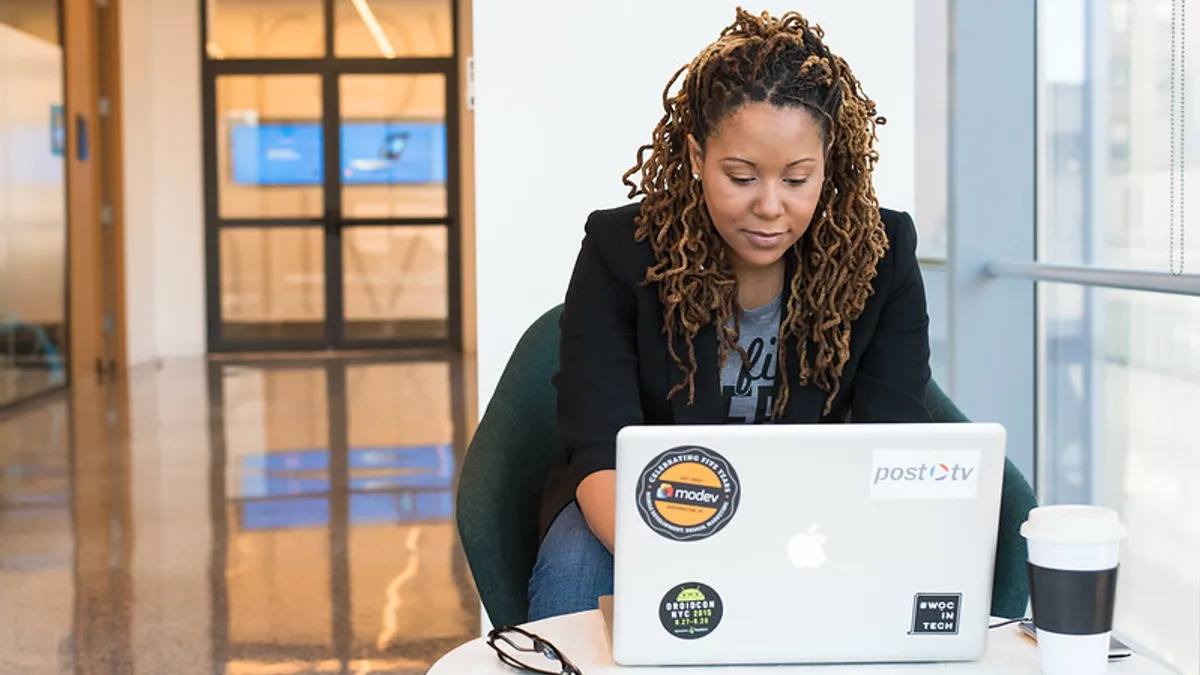Dive Brief:
- Sixty-two percent of women in the green building industry report the pandemic has negatively affected their workplace equity, according to a recent U.S. Green Building Council (USGBC) survey of 500 women.
- Eighty-nine percent of women reported feeling significant financial, professional and familial impacts from the pandemic, with family (67%) and professional (61%) pressures being felt the most.
- Eighty-six percent of women said employers have made efforts to be more supportive of those juggling work and childcare, but respondents also said women are the ones who bear the brunt of household duties when schools are remote. "The added responsibilities are pushing women to feel as if they must sacrifice their career," a USGBC spokesperson wrote.
Dive Insight:
The pandemic has impacted women's employment: Women have lost nearly 7 million jobs since February 2020, according to the Bureau of Labor Statistics, accounting for 55% of all job loss. More women also left the workforce in September than joined, with 865,000 women departing compared to 216,000 men, the 19th reports.
Women are putting their careers on the back-burner because they are needed at home, said Taryn Holowka, USGBC senior vice president of marketing, communications and advocacy. Some women at USGBC have even left their jobs due to family demands, Holowka said.
One in four women are contemplating leaving the workforce or "downshifting their careers," with mothers, senior-level women and Black women experiencing especially difficult challenges balancing work and home amid the pandemic, McKinsey & Company reports.
"I feel backed in a corner, to have to either choose between educating my children or striving to remain productive and generate sufficient funds to feel like I am an accomplished woman," one USGBC survey respondent wrote.
The pandemic's effects on gender equity in male-dominated smart city industries could also be particularly harmful. Women account for only 10.3% of the construction industry, for instance, and 16% of the industry's C-level positions, according to a BigRentz report. The architecture industry is also home to significant gender disparities, particularly around perceptions of caregiving roles.
More male architects are parents, for example, than women architects, but only 5% of those men identify as primary caregivers compared to 44% of women, according to the American Institute of Architects.
"I’m worried that women in this industry will be left behind in the future as a result of this interruption/pause," one USGBC survey respondent wrote.












